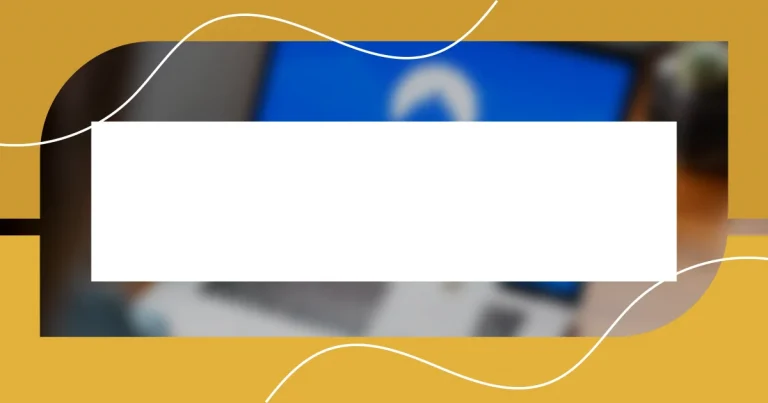Key takeaways:
- Starting a new venture involves grappling with uncertainty, time management, and emotional ups and downs; seeking help and nurturing resilience are crucial for overcoming these challenges.
- Developing key skills such as effective communication, adaptability, and networking can significantly enhance one’s professional journey and open doors to new opportunities.
- Building a supportive network and embracing flexibility can lead to innovation and creative problem-solving, highlighting the importance of learning from both successes and failures.

Understanding common challenges faced
One of the most common challenges I faced when I was starting out was the overwhelming uncertainty. I remember feeling like I was navigating a maze without a map. Do you ever feel like you’re just guessing your way through decisions? That doubt can be paralyzing, but I soon learned that it’s okay to ask for help and gather insights from others who have been there.
Another obstacle that often sneaks up on new ventures is time management. There were days when I was drowning in tasks, yet none of them seemed to push me closer to my goals. Have you ever looked up to realize hours have slipped away without any progress? I found that prioritizing my tasks and setting small, achievable milestones made each day feel more productive, even if the larger goal still loomed in the distance.
Lastly, let’s talk about the emotional rollercoaster that comes with starting something new. I vividly recall those days of exhilaration quickly followed by feelings of doubt and frustration. It’s almost like riding a wave—one moment you’re on top of the world, and the next, you’re fighting against the tide. Have you ever experienced that push-and-pull of emotions? I discovered that cultivating resilience and practicing self-compassion were invaluable tools in navigating those turbulent waters.

Identifying key skills to develop
Identifying the key skills to develop early on can significantly shape your journey. There were skills I wished I had prioritized, such as effective communication. I remember missing opportunities simply because I couldn’t articulate my ideas clearly. This realization hit me hard while pitching a project to colleagues. If I’d only practiced conveying my thoughts better, I might have garnered more support. Here’s a list of essential skills I believe everyone should hone:
- Active listening: Understanding others’ perspectives can foster collaboration.
- Time management: Prioritizing tasks helps in achieving goals systematically.
- Adaptability: The ability to pivot based on changing circumstances is crucial.
- Basic financial literacy: Understanding your finances can save you from potential pitfalls.
Another skill that often gets overlooked is networking. Early in my career, I saw networking as a scary task; it felt like I was walking into a room full of strangers. But I soon discovered that building relationships can open doors I never even realized were there. During one of those early networking events, I connected with a mentor who played a pivotal role in guiding me. Developing networking skills is not just about gathering contacts; it’s about building genuine relationships. Here’s what to focus on:
- Presentation skills: Being able to present your ideas confidently can make a lasting impression.
- Emotional intelligence: Understanding your own emotions and those of others can help you navigate interpersonal dynamics.
- Problem-solving: The ability to approach challenges creatively can set you apart.

Building a supportive network
Building a supportive network is crucial and often underestimated. When I first started, I was hesitant to reach out, thinking I needed to figure everything out on my own. After months of isolation, I attended a local meet-up, and the warmth of being surrounded by like-minded individuals was overwhelming. It was a reminder that collaboration can lead to unexpected opportunities and a sense of belonging. Have you ever realized that just a single conversation can turn the tide in your journey?
As I navigated my early days, I learned the importance of nurturing connections. One afternoon, while catching up with a fellow entrepreneur, I discovered that they had faced similar challenges. This shared experience was not only comforting; it also provided practical solutions I hadn’t considered. Building strong relationships means offering support, too, and I find that this reciprocity strengthens bonds. Who knew that a simple coffee chat could ignite so many ideas?
I now see the value in diverse perspectives. Early on, I surrounded myself with people who mirrored my beliefs, which limited my growth. Expanding my network to include those with varying experiences opened my eyes to new possibilities. I remember a brainstorming session where an outsider’s viewpoint revealed a blind spot in my plan, ultimately saving me time and resources. Having a supportive network encourages exploration and innovation—something that can ignite incredible progress.
| Aspect | Personal Experience |
|---|---|
| Initial Hesitation | I doubted reaching out for support, thinking I needed to solve everything alone. |
| Importance of Nurturing Relationships | Conversations with fellow entrepreneurs provided me with unexpected insights and solutions. |
| Diversity of Perspectives | Including people with different experiences helped me identify blind spots in my plans. |

Setting realistic expectations early
Setting realistic expectations early on can be a game changer in your journey. I remember my first project—I envisioned a ground-breaking success without truly understanding the complexity involved. When reality set in, and I encountered setbacks, I felt disheartened. I learned that framing my goals within logical parameters not only prepared me for challenges but also helped me celebrate small victories along the way. Has this ever happened to you, where anticipation clashed with reality?
As I grew more accustomed to my environment, I realized that questioning my assumptions was crucial. At one point, I designed a timeline for a major initiative that turned out to be overly ambitious. My initial excitement was dashed when I missed key milestones. This experience taught me the value of building in flexibility—allowing room for unforeseen obstacles while still keeping focused on my core goals. Have you ever had to pivot unexpectedly while working on a project? It can be frustrating but ultimately rewarding.
Another lesson emerged from openly communicating my progress and setbacks with my team. Instead of presenting a polished facade, I adopted a more transparent approach, sharing the bumps along the road. This honesty fostered a supportive atmosphere where we could collectively recalibrate our expectations. I found that when we openly discussed challenges, it not only drew us closer but also inspired creativity in problem-solving. Can you imagine how liberating it felt to shed the pressure of perfection?

Learning from others’ experiences
Learning from the experiences of others has been absolutely eye-opening for me. I remember attending a panel discussion early in my journey, where successful entrepreneurs shared their missteps and lessons learned. Hearing their stories not only validated my own struggles but also gave me actionable insights to avoid similar pitfalls. Have you ever felt that rush of relief when you realize you’re not alone in your challenges?
One of the most memorable lessons came from a mentor who described her early days in vivid detail. She spoke about a moment when she faced a major setback that almost led her to quit. Instead of giving up, she adjusted her approach and found a new path to success. That always stuck with me. It made me ponder: how often do we allow temporary failures to define our journey? I’ve learned that embracing failure as a part of growth is essential.
As I began to share my own experiences, I was surprised by the way it fostered connection. By being open about my mistakes, I encouraged others to share theirs, creating an environment of trust and learning. I think about a discussion group I joined, where we all laid bare our vulnerabilities. Those conversations not only strengthened our relationships but sparked innovative ideas that none of us would have considered in isolation. Can you think of a time when sharing experiences led to unexpected collaboration in your life?

Embracing flexibility and adaptability
Embracing flexibility and adaptability has been a revolutionary aspect of my journey. In my early days, I stubbornly clung to rigid plans, often to my detriment. It wasn’t until a particularly chaotic week forced me to rethink everything that I grasped the importance of adjusting my expectations. I remember scrambling to meet a deadline after an unexpected setback. It dawned on me then: adaptability isn’t just a safety net; it’s a vital skill that can transform challenges into opportunities. Have you found yourself in a similar position, where flexibility turned a potential disaster into a success?
As I navigated through diverse projects, I learned that adapting doesn’t mean losing focus. One instance stands out when I had to pivot a marketing strategy just days before a campaign launch. Initially, I felt overwhelmed and discouraged, thinking I had failed in my planning. However, by embracing change and adjusting my approach, I ended up discovering a more engaged audience than I initially targeted. That moment taught me that staying agile not only keeps projects alive but often leads to surprising and delightful outcomes. How do you approach last-minute changes in your work?
Over time, I realized that adaptability isn’t just a personal trait; it’s contagious. I often saw how my team responded positively to my willingness to be flexible. When I encouraged open discussions about changes and setbacks, we became a more cohesive unit. I vividly recall a brainstorming session where team members offered creative, last-minute solutions that reshaped our project. Watching everyone rally together and contribute was invigorating; it reminded me of the power of teamwork in navigating uncertainty. Have you experienced a similar synergy when embracing flexibility with your team?












